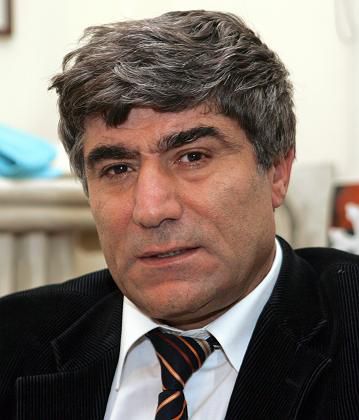Legacy and Me: Hrant Dink and the Preservation of Testimony
On Jan. 19, 2016, the Organization of Istanbul Armenians (OIA) organized a commemoration for the ninth anniversary of the assassination of prominent Turkish-Armenian journalist Hrant Dink. It was exactly nine years after my friends and I learned of his murder without fully understanding who he was and what his legacy would mean to us in the years to come.

His funeral was attended by approximately 200,000 mourners, placing the spectacle among the largest funeral processions in the history of Turkey. What happened after was a significant change in society, where Dink became the symbol and martyr of not only Armenians but all freedom loving Turkish citizens.
Hrant Dink’s ideals have drawn me in intellectually and made me feel whole both as a human and as an Armenian. His discussions of free speech, breaking taboos, citizenship, genocide recognition, solidarity with other marginalized groups, reconciliation with Turks and Kurds, and his views on a material and spiritual Armenian past remaining in Turkey as a reality that can be streamlined into a modern Armenian identity, has forever changed me.
If it were not for Dink and his tragic death, I would likely not be where I am today; working at USC Shoah Foundation to help preserve memories from a collective Armenian past with the intention of teaching the future.
I can’t help but observe certain levels of similarity of this work of preserving Armenian Genocide testimonies – as well all other genocides – and Dink’s struggle and ideals. We are preserving our elders' voices, the voices that were kept within the confines of the home and are now meant to reach the world in order to rethink our past and its place in our present and future.
Hopefully, those voices will make its biggest impact to those still living where these testimonies have taken place. That’s what Dink would have wanted most, to re-center that which has stayed on the margins.